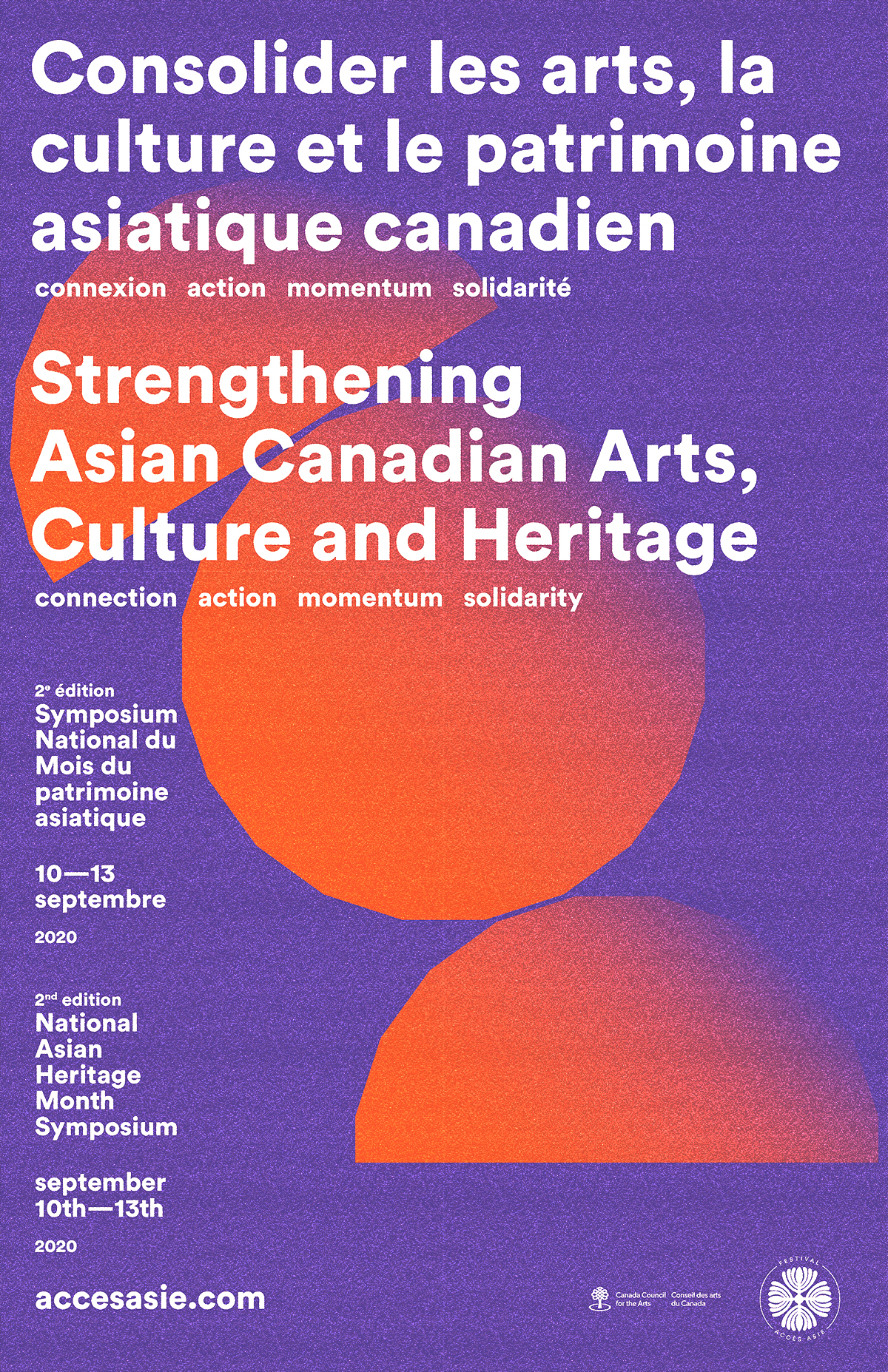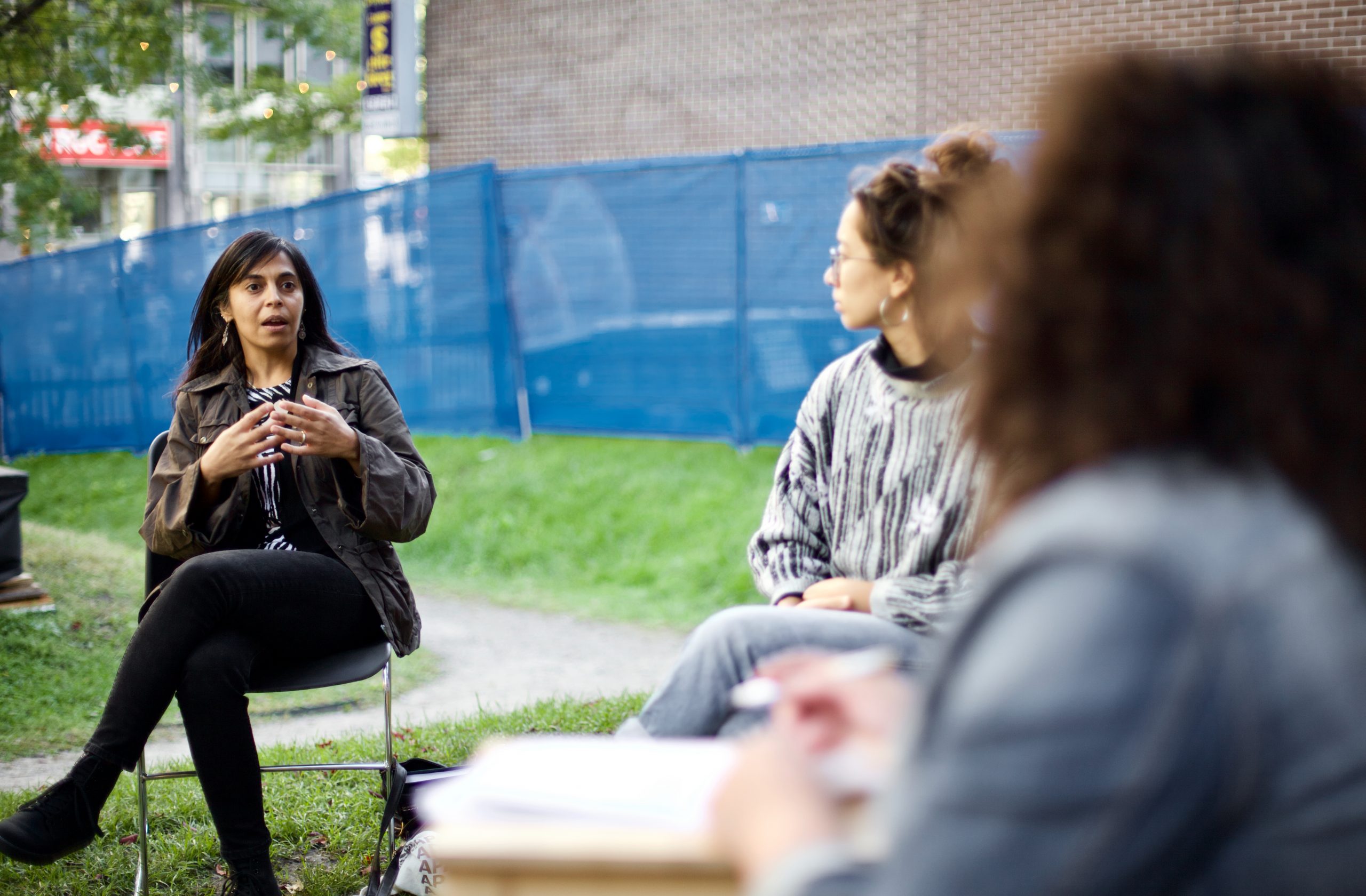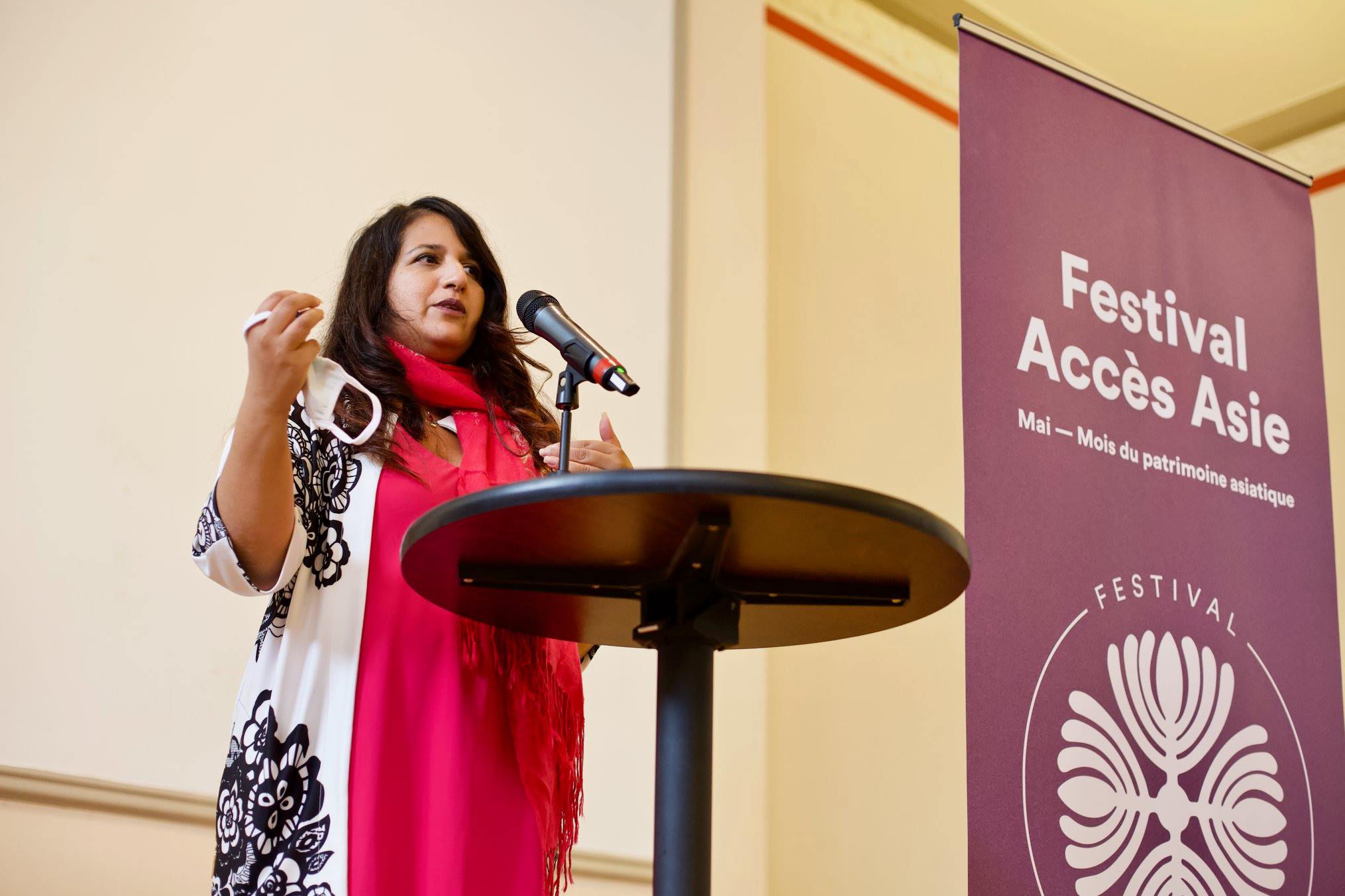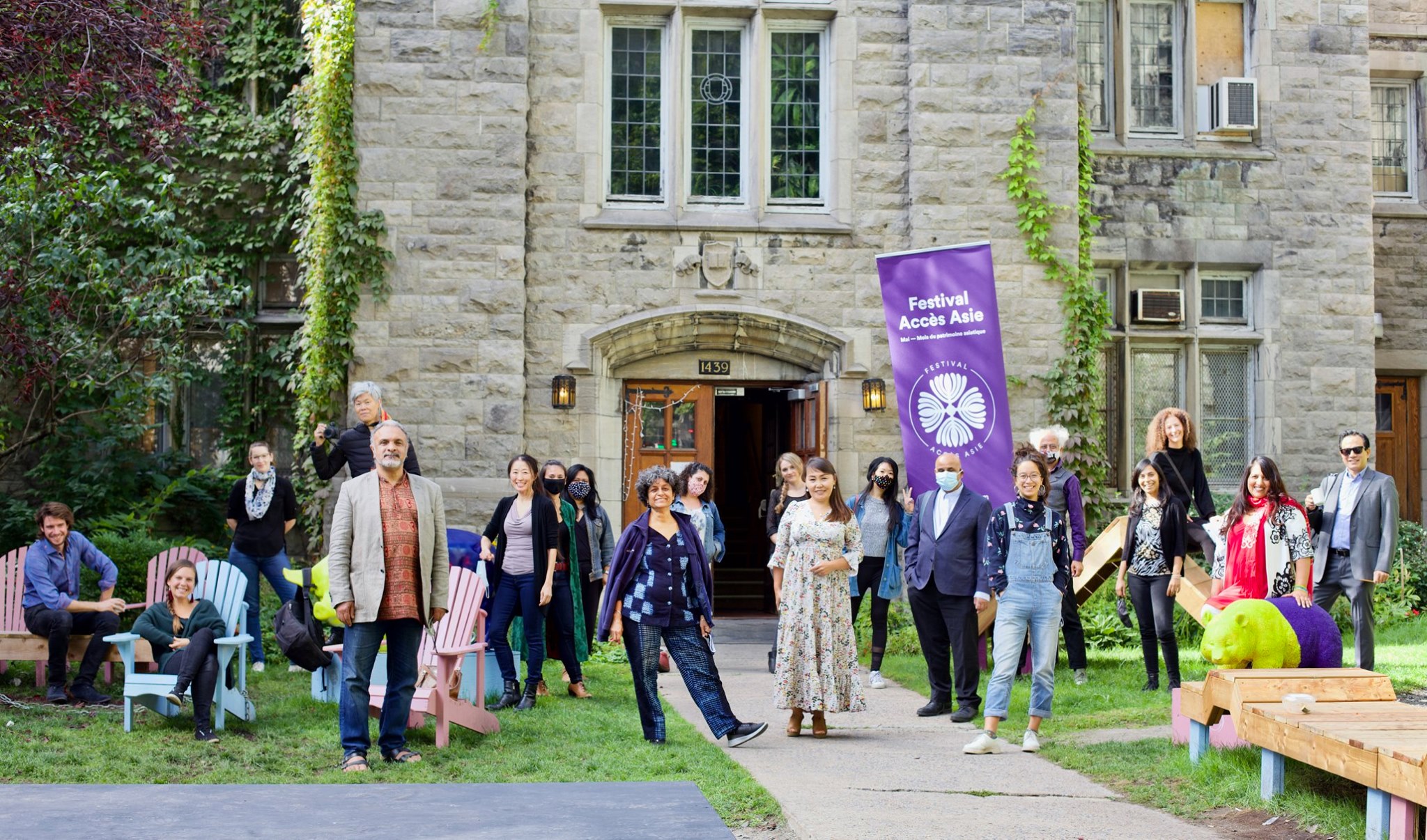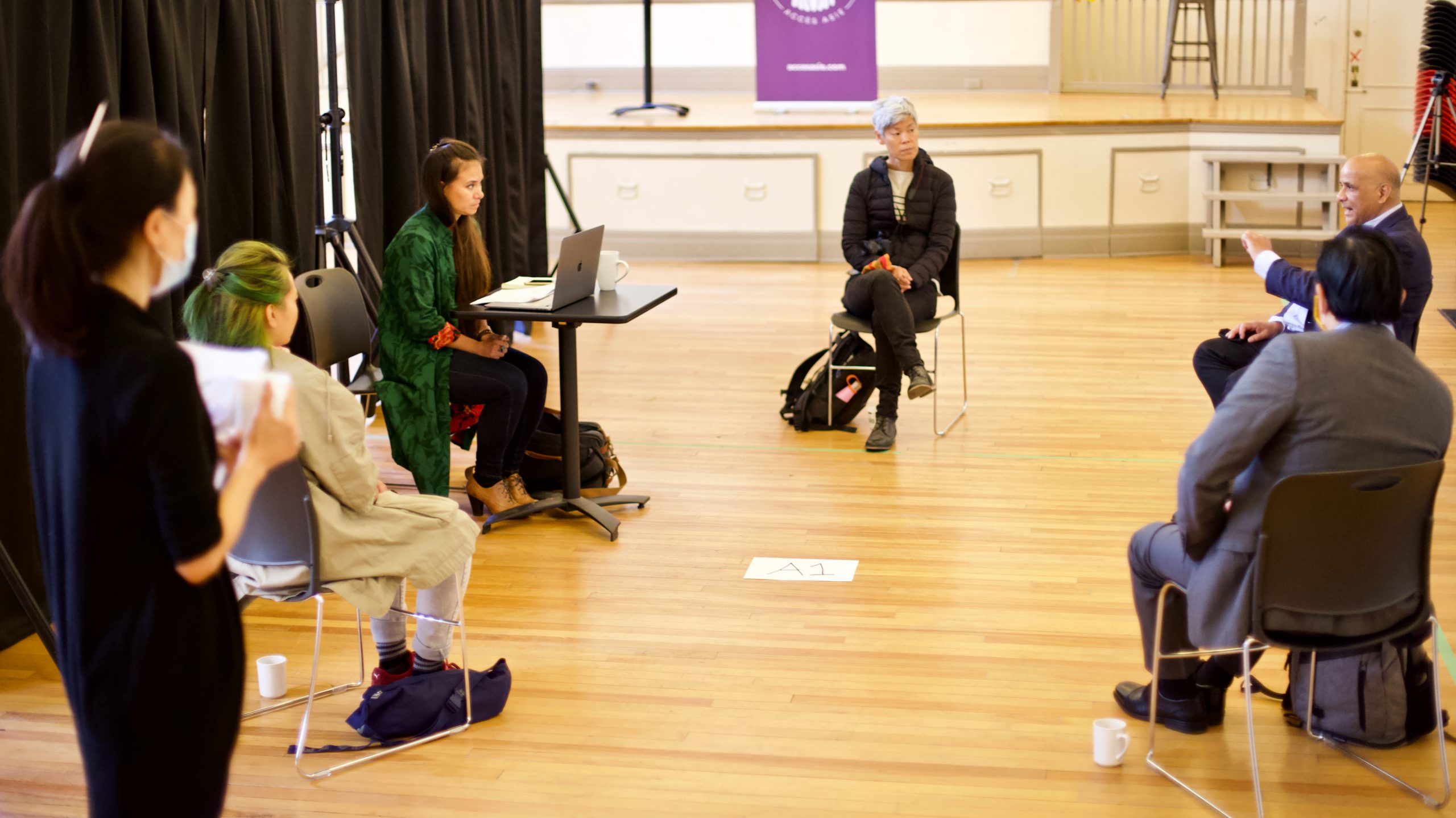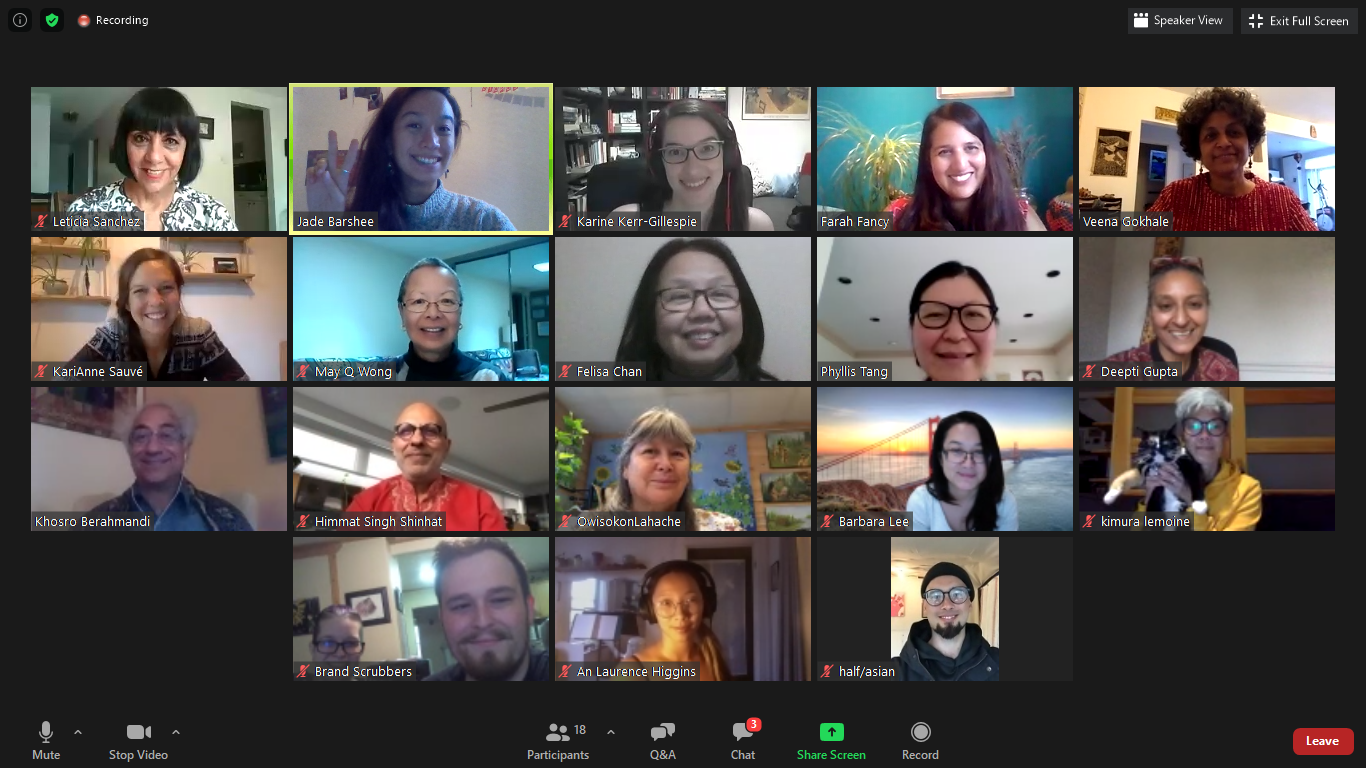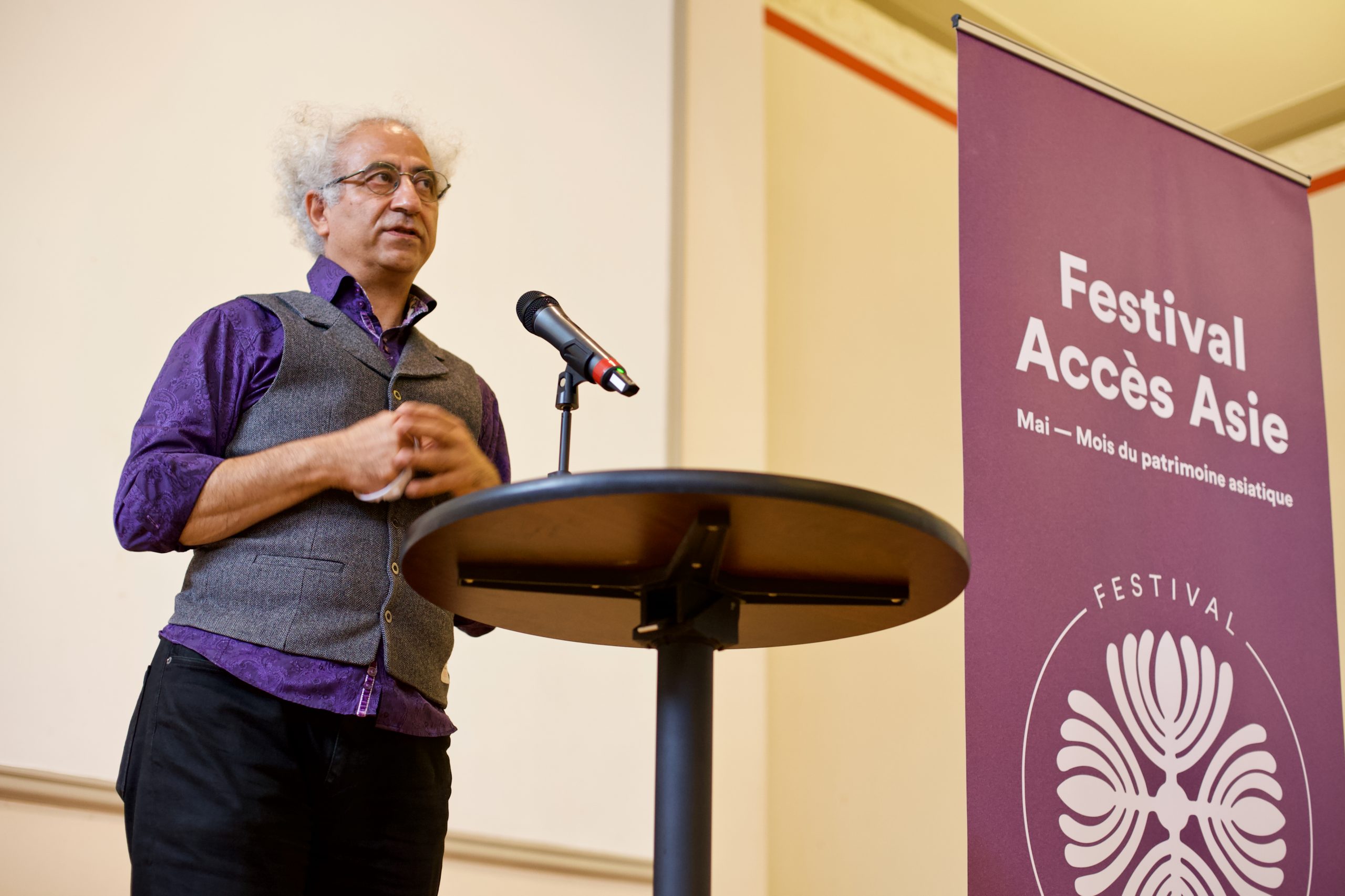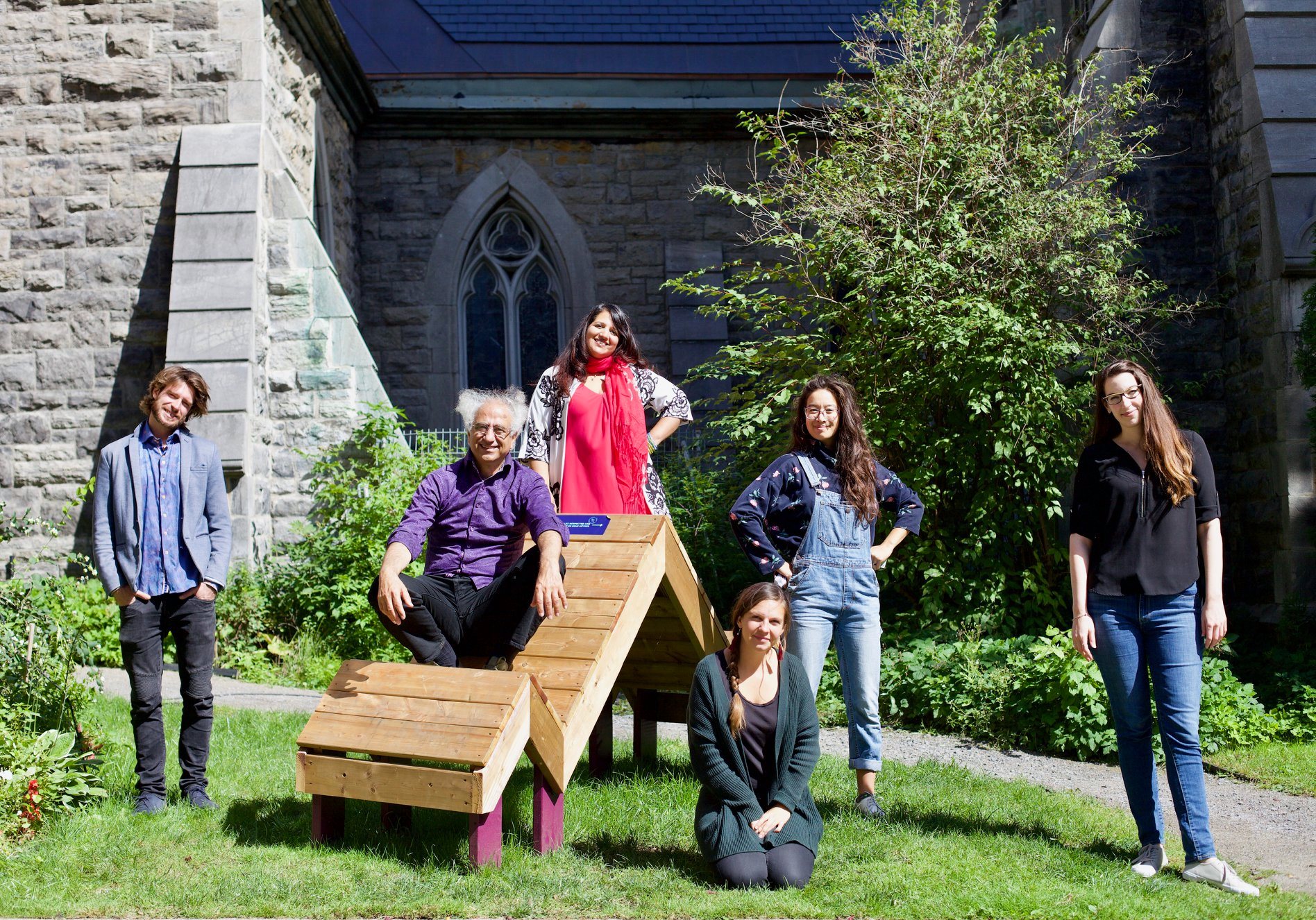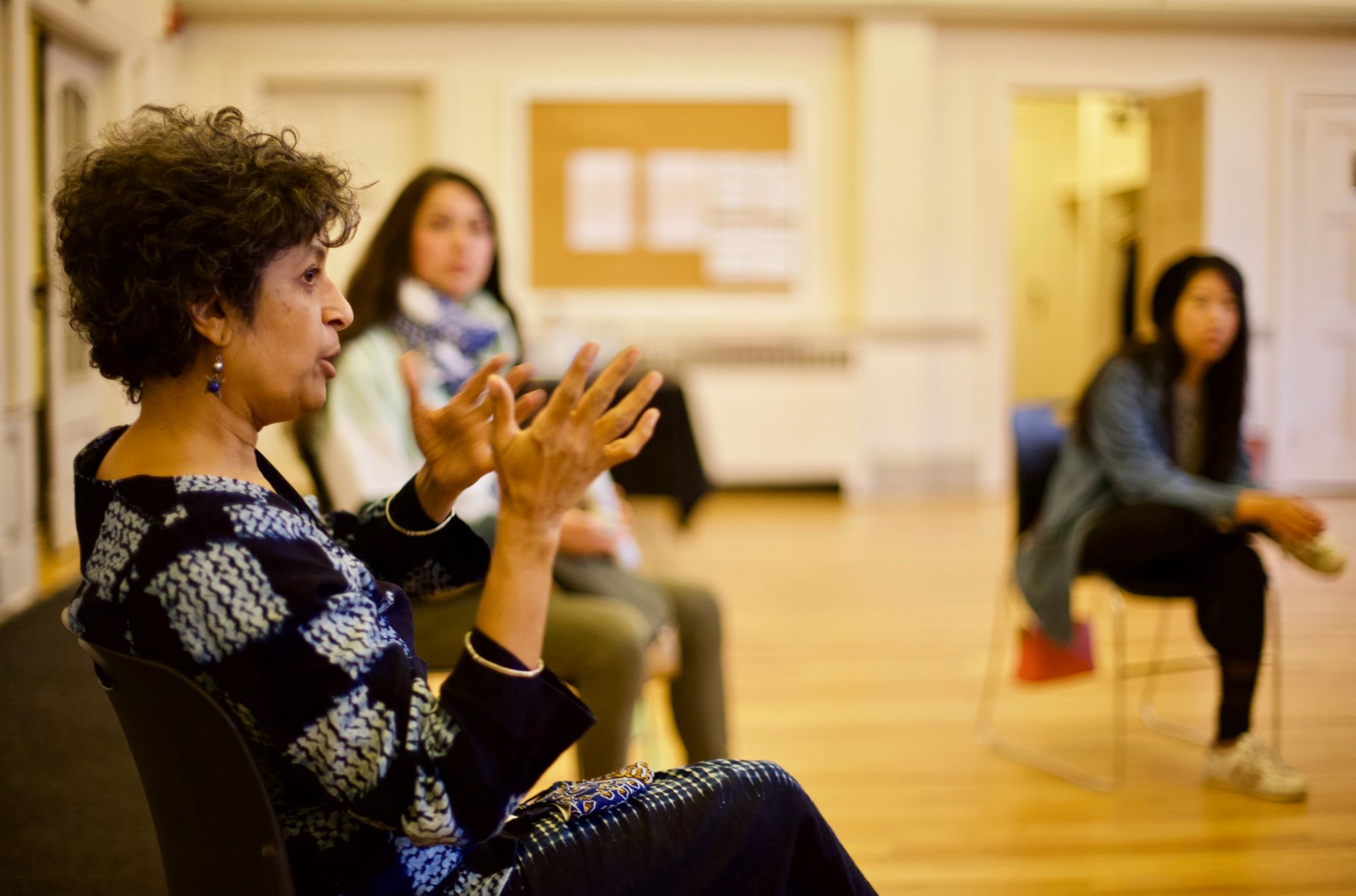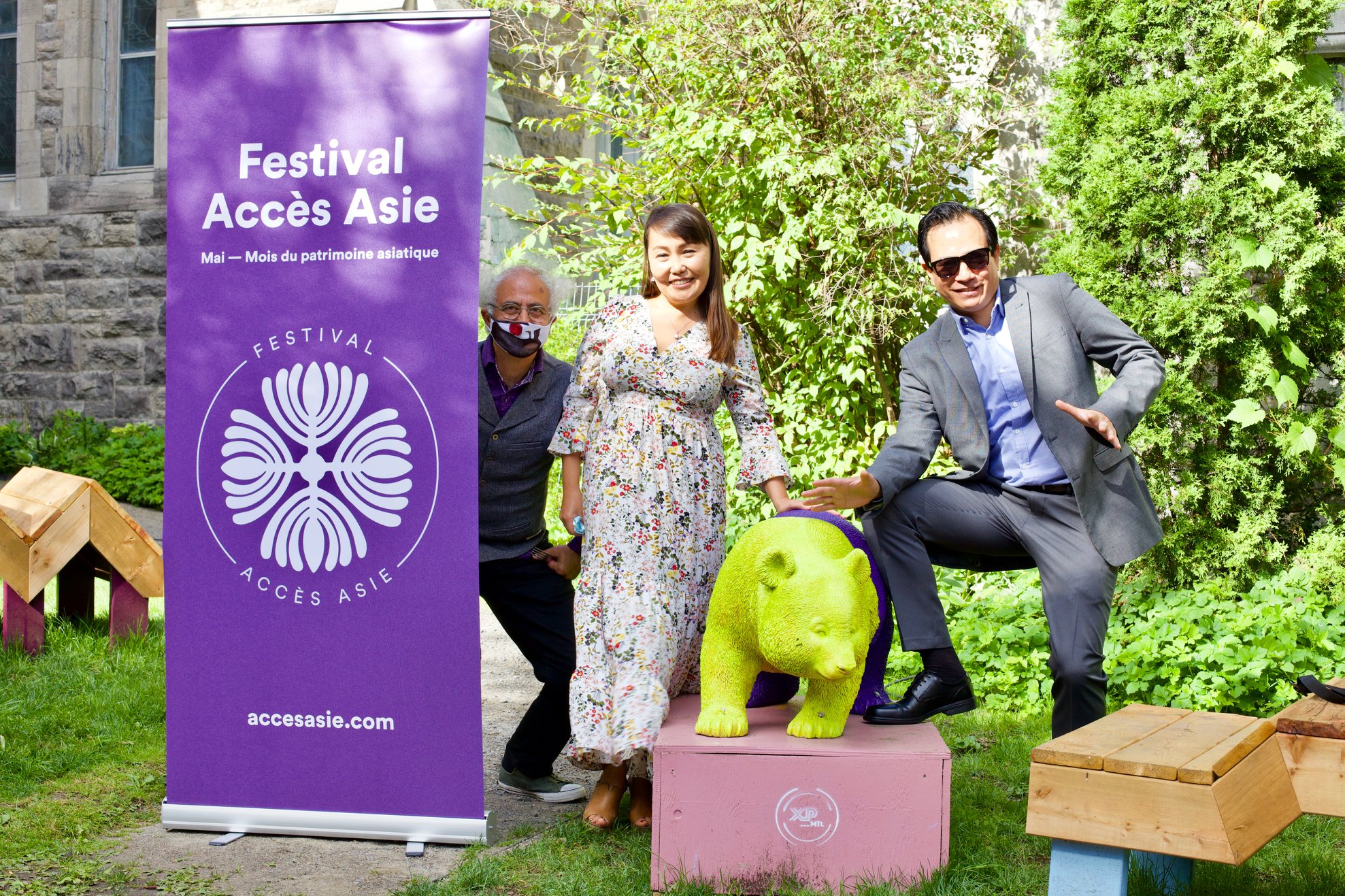National Asian Heritage Month Symposium
Strengthening Asian Canadian arts, culture, and heritage
To respond to the challenges related to the development and health of Asian Canadian heritage, Festival Accès Asie organized a 2nd National Asian Heritage Month Symposium online from September 10 to 13, 2020.
Description
It took place ten years after the 1st Symposium that Festival Accès Asie organized and was guided by the objectives to:
- create connections between organizations, artists, and cultural workers in Asian heritage across the country;
- motivate national, local and individual actions to enrich the reach and depth of the arts and culture of Asian Canadian artists and cultural workers;
- build momentum beyond the dates of the Symposium to foster the continuity and growth of Asian heritage in Canada;
- develop solidarity within our own communities as well as outside to promote the construction of a national network.
Events were held in both official languages, online and in person, at satellite locations across the country. View the full Symposium program.
The Symposium in numbers were
- 344 registrants
- more than 200 participants at the opening ceremony
- 30 presenters
- 23 breakout sessions in 6 cities across the country
- 3 First Nations reflection sessions with 8 First Nations representatives
- 6 working groups created out of which more than 50 recommendations were developed
The Symposium also included 6 online pre-events serving to exchange ideas on critical themes related to the celebration and promotion of Asian heritage and to establish a common ground for the Symposium.
Medias
Description
In anticipation of the 2nd Asian Heritage Month National Symposium, we held a series of pre-symposium events to establish a common basis for creating concrete actions for the Symposium.
The purpose of these events was to:
- stimulate and facilitate engagement;
- encourage actions during the Symposium; and
- gain a better understanding of different perspectives.
Together, at these pre-symposium events, we opened conversations and committed to sharing information with stakeholders. Access the summary of these meetings below.
Note: Pre-symposium online events were held in English with French translation chat available. These events were not recorded to maintain privacy for those participating.
August 11 - Why or Why Not Asian Heritage Month
We began with a wonderfully open discussion on questions of identity and the importance of promoting Asian heritage. Actions were suggested to provide the opportunity of working together to break isolation, connect across our ethnicities, share ideas, understand our similarities and our differences, overcome our fears, and move forward together. We agreed that Asian Heritage Month is a means to strengthen identity, promote, and celebrate the diversity and depth of Asian culture and heritage. However, we should move beyond the month of May to amplify Asian presence in the arts and culture. Suggestions were made such as having a year-round showcase of Asian artists across the provinces, highlighting contributions made, going to schools to educate and increase visibility of Asians across discipline and sector, using Black History Month as a model.
August 13 - Is the National Digital Strategy for you?
Please see below a video excerpt of the executive summary of the digital strategy survey.
August 18 - Cultural Appreciation vs Cultural Appropriation: Solidarity with First Nations, Inuit and Metis
This group defined what colonization is and discussed how we can decolonize our own artistic practices to be in greater solidarity with First Nations, Inuit, and Metis. To summarize, we determined that we need dialogue, access, and measures to counter erasure along with time to share our thoughts and feelings, offer apologies, let go of anger and frustration, consider expressions of art outside the understood cannon, be more open minded, increase cultural sensitivity, etc. Collectively, we created a manifesto of commitments that we would love to have people enact during the Symposium in an effort to increase solidarity in the following ways:
- act with equality and respect
- be mindful in communication
- be tolerant and aware
- actively listen
- acknowledge wrongs
- develop deep and meaningful cultural appreciation
- recognize that English is not the language in our DNA
- recognize that entry and access points into a conversation may be different
- recognize privilege
- respect and honour
- understand that power dynamics exist
- constructively question to support each other
- question extraction
- radically collaborate and love
August 20 - Ressource and Tools: A Cultural Translation
This discussion centered on how to make tools and resources accessible to everyone. We explored our real needs, what we lack, and which resources we could offer.
We spoke about developing a connection with all Asian heritage chapters and organizations that celebrate Asian Heritage Month in Canada and beyond. Proposals were made to open conversations with artists on how they can be presented in the online space in the post COVID-19 landscape. We need to support relationships for mutual mentorship between “general population artists” and people from our cultural communities. We need to have workshops on digital literacy and a space, real or virtual, to archive the work of Asian artists. Participants also addressed the nuanced differences between Asian Canadians’ engagement with content and material as well as the barriers that exist.
Lastly, we spoke of the importance of creating better connectivity with general audiences.
August 25 - Building a Network of Asian Canadians in Arts, Culture, and Heritage
Creating a National Network of Asian Canadians in Arts, Culture, and Heritage has its challenges and benefits, but overall there was consensus that we need to create an umbrella body to connect, collaborate, and increase visibility. There is a clear understanding that each region in Canada has its own particular context, political stance, needs, and desires, and that in some locations the Network may not be useful.
Our main purpose will be to create opportunities for communicating, collaborating, and addressing, for example, gaps in training for POC, visibility, and the lack of touring circuits and funds. Promoting a better understanding of inclusivity, resource sharing, problem solving, and support are potential benefits of such a network.
The following solutions for action were proposed during the Symposium:
- increase digital exchanges and collaborations
- support for the artists to create more visibility
- create virtual co-working spaces
- encourage the next generation to participate
- produce mechanisms nationally to engage in the education system
- create partnerships with provinces to establish rotating exchanges
- develop a touring circuit
- create residency opportunities not only for artists but also in administration
The National Network core team could also help to carry the momentum of the digital strategy and hold follow up national symposiums in different locations across the country.
August 27 - Funding for Asians in the Arts, Culture, and Heritage
The funding sources available to individuals and organizations were explained during the meeting.
In the immediate, these sites offer summaries of COVID-19 funding:
● Resources for the Arts and Learning sector during the COVID-19 pandemic
● ArtReach Covid-19 Resource List
● Cultural Human Resources Council
Overall, we already know that there are barriers to funding. For example, it is difficult to fit the criteria of funding sources, understand the funding systems. which is not user friendly, and find the appropriate funding. These barriers lead to a great deal of fear and stress which are compounded by the cultural norm not to self-promote.
We touched on current questions of how to dismantle the current system to better serve under-represented populations and how to help one another.
We started to build a strategic plan to prevent barriers and add suggestions and solutions to make funding applications easier. A few suggestions offered were to:
- provide more welcoming environments to meet program officers;
- get funders to do more consultation with under-represented communities to understand the language we speak;
- engage in open conversations on the cultural translation between grant speak and Asian artist speak;
- normalize applying for and not receiving a positive result;
- include more Asians on evaluation committees.
Everyone agreed to organize further co-working and co-sharing meetings as well as grant reading/writing workshops to help each other and build unity.
September 10th 2020
September 11th 2020
- Indigenous Welcome - Creating Solidarity Across Culture and Indigeniety
- Non-traditional funding sources for Arts Organizations/Collectives by Nick Maturo
- Programing that reflects our reality by Khosro Berahmandi
- Including overseas asian adoptee artists in the landscape of the Global Asian Diaspora Art by Kimura Byol - Nathalie Lemoine
- Funders Panel: Reducing Discrimination in Obtaining Funding - Increasing Access
- Interaction between Chinese Popular Music and Asian Heritage Elements in Music Production by Phyllis Tang
- Dancing a new Canada- Personal Choreographic Ruminations by Hari Krishnan
- EX SITU: Thriving in a Habitat That is not Naturally Your Own by Ovvian Castrillo Hill
- My Immigration Experience: From Child Immigrant to Beauty Queen by Bremiella de Guzman
- Cosmos to clarity: using ordinary moments to create extraordinary breakthroughs by Vaishali Nikhade
- Elimin8hate Campaign - Multimedia Campaign to Transform Anti-Asian Racism Incidents by Barbara Lee
- First Nations Reflections Sept 11: Where we are at Chat
- Fusion Architecture: Approach to Designing Asian Culture and Identity in Canada by Dr. Henry Tsang
- Expanding Our Interconnections by Jing Palad
- Doing it Together: How to work in the Arts and in community from an Independent and Inclusive lens
- Connecting Asian Canadians through Storytelling & Food a presentation by Winnie Cheung and Sophie Munk
- Rethinking Digital Access: Towards an Accessible Online Presentation Platform by Yun-Jou Chang
- (Re)vise (Re)invent (Re)connect by Farah Fancy and Himmat Singh Shinhat
- Intercultural Storytelling by Sangeeta Wylie
- Uniting the Asian Immigrant community in New Brunswick with the sounds of music by Madhu Verma
- NKK Dance Centre and being a global artist by Peter Chin
